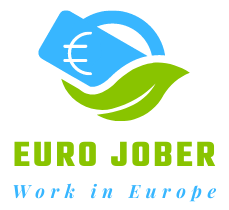The Evolving Job Market in Germany: Opportunities and Trends
Germany, known for its strong economy and robust industrial sector, has long been an attractive destination for job seekers from around the world. The German job market is characterized by its stability, competitive wages, and diverse employment opportunities.
In recent years, the job market in Germany has witnessed significant changes due to technological advancements, demographic shifts, and the impact of global events.
This article explores the current state of the job market in Germany, highlighting key trends, opportunities, and challenges.
- The German Economy and Labor Market
Germany boasts the largest economy in Europe and is a global leader in several industries, including automotive, engineering, pharmaceuticals, and renewable energy.
The country’s industrial strength has been a driving force behind its robust labor market. Germany’s low unemployment rate, typically hovering around 4 to 5 percent, reflects its strong economic performance and stable labor market.
- Digital Transformation and Technological Advancements
Like many countries, Germany is experiencing a digital transformation that is reshaping its job market. Automation, artificial intelligence, and digitalization are impacting various sectors, leading to a demand for new skills and competencies.
Industries such as manufacturing, logistics, and customer service are increasingly utilizing advanced technologies, while job roles focusing on data analysis, software development, and cybersecurity are gaining prominence.
The German government and businesses have recognized the importance of digital skills and have taken steps to promote digital literacy and vocational training programs.
These initiatives aim to equip the workforce with the skills necessary to adapt to the changing job market and ensure continued economic growth.
- Opportunities in the Green Economy
Germany has long been committed to sustainability and renewable energy. The country’s ambitious energy transition plan, known as the Energiewende, has created numerous opportunities in the green economy.
As Germany strives to reduce its carbon footprint and shift towards cleaner energy sources, jobs in renewable energy, energy efficiency, and sustainable technologies are on the rise.
These fields offer exciting prospects for professionals with expertise in engineering, environmental sciences, and project management.
- Skilled Labor Shortage
Germany faces a significant challenge in the form of a skilled labor shortage. The country’s aging population and low birth rate have resulted in a shrinking workforce. To counter this trend, Germany has implemented policies to attract highly skilled workers from abroad.
The Blue Card program, for instance, enables non-EU citizens with specialized qualifications to live and work in Germany. Additionally, vocational training programs have been expanded to provide opportunities for young people to develop in-demand skills.
- Changing Work Culture and Flexibility
The COVID-19 pandemic has accelerated the adoption of remote work and flexible work arrangements in Germany. Many companies have embraced remote work models, realizing the benefits of increased productivity and improved work-life balance.
This shift has opened up opportunities for individuals residing outside major urban centers to access job opportunities that were previously geographically restricted.
However, it is worth noting that certain sectors, such as manufacturing, require physical presence and are less adaptable to remote work.
- Integration of International Talent
Germany values diversity and international talent, as it brings new perspectives and expertise to its workforce.
The country actively encourages the integration of skilled professionals from abroad through streamlined visa processes and support networks.
Many cities in Germany have thriving international communities, offering a welcoming environment for expatriates.
- Challenges and Future Outlook
While Germany’s job market offers numerous opportunities, challenges remain. The COVID-19 pandemic has had a significant impact on the economy, leading to job losses and economic uncertainty. However, the German government has implemented stimulus measures to support businesses and protect jobs.
Additionally, the transition to a digital economy and the automation of certain job roles pose challenges for individuals who need to upskill or transition into new fields.
Addressing the skills gap and providing adequate training opportunities will be crucial to ensuring a smooth workforce transition.
What’s next for the German market?
The job market in Germany continues to evolve in response to technological advancements, demographic changes, and global events.
The country’s strong economy, commitment to sustainability, and emphasis on skills development make it an attractive destination for job seekers.
However, adapting to digital transformation, addressing the skilled labor shortage, and navigating the changing work culture will be essential for both individuals and businesses to thrive in Germany’s dynamic job market.

